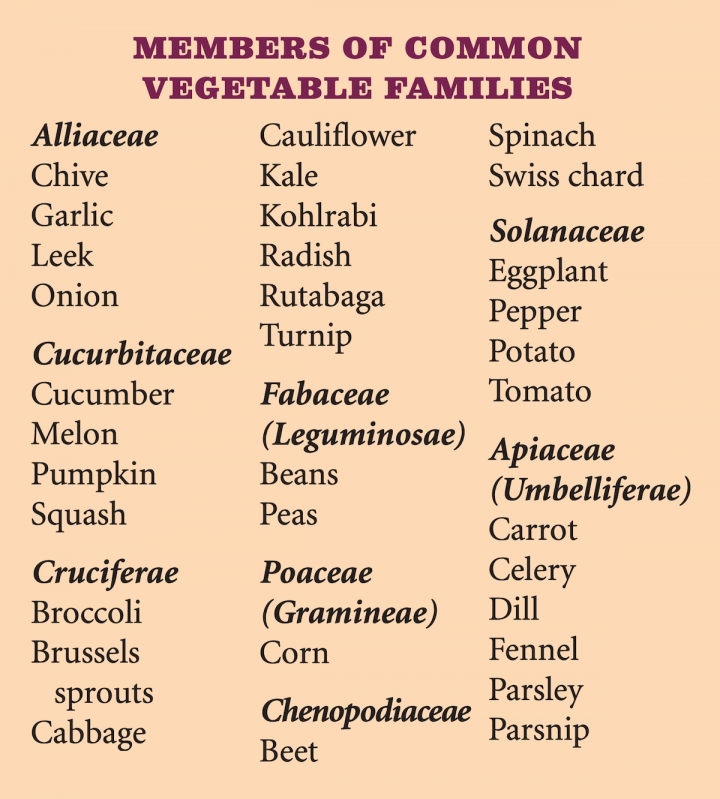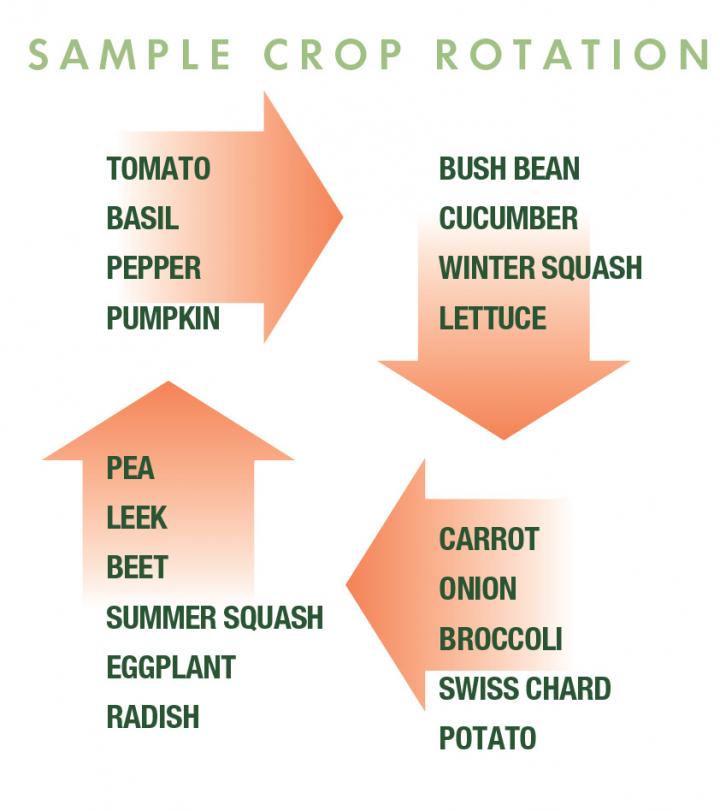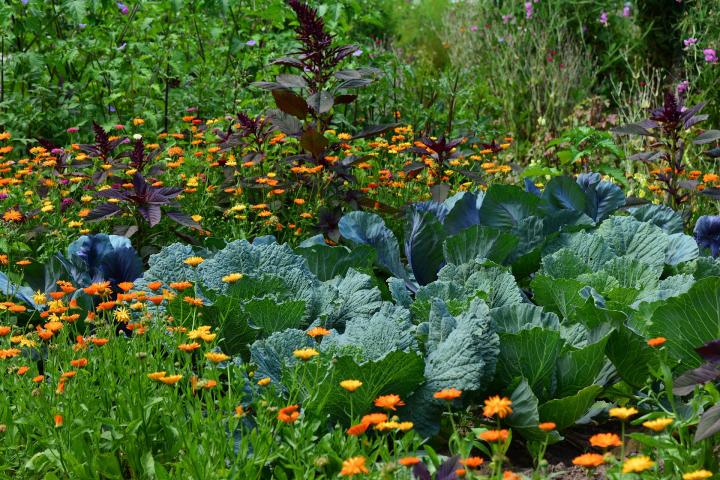Primary Image

Photo Credit
PhotoLinchen/Getty Images
Four-Bed Crop Rotation Plan
More Like This
I agree with the other commenters, I too am confused that the infographic doesn't match the instructions in the article. It seemed like you were saying the simple method is to put all plants of the same family in their own separate bed and rotate from there, but the graphic has the families mixed up all over the 4 beds. Maybe the graphics guy got it wrong?
Love the photo with the marigolds threading through the brassicas and amaranth (i think). I'm in the UK so potatoes are more at risk from blight than the Colorado beetle. Your comment about them walking from Denver made me laugh though! Don't get me started on asparagus beetles and rosemary beetles though... I'm a scatterbrained allotment gardener and am not as diligent as is ideal. However, the ladybirds don't seem to mind and this year there are hundreds of them. They kept the overwintered fava beans clean and are enjoying the aphids bothering the edges of the Southern Collard Greens plant which I'm hoping to save seed from. First year growing that - delicious!
Thanks for the crop rotation and fallow planting/periods advice. Very useful reminders for a forgetful gardener.
ANSWER TO FEB.4 AND MAY16 QUESTION IS IN THE ARTICLE. (One caveat: Try to arrange your plants within each quarter to avoid places where you had family members the year before.)
I too am interested in your answer to the questions submitted on Feb 4 regarding rotation with nightshade following previous nightshades, etc Thx
Thanks so much for this info. I’m new to gardening so I need all the help I can get. I love how much I’ve learned from this article! But the sample chart has nightshades and gourds in three different beds following each other from bed to bed each year. Doesn’t that defeat the purpose? Also, how do we know what of the 8 families can be neighbors in each of our 4 zones? Thanks so much for the info and guidance!
A few gardeners have told me that tomatoes like to be planted in the same spot they were in the previous year- I've always followed the rule to rotate tomatoes with my other crops. What is your recommendation regarding crop rotation and tomatoes?
The main reasons for crop rotation are to avoid pests and diseases that build up in the soil year after year and to ensure that nutrients are never depleted. Different plants require nutrients in different amounts, so if you always plant one type of veggie in the same spot, it will always be drawing more of those particular nutrients from the soil and will eventually deplete the soil of what it requires. As for pests and diseases, those that affect tomatoes may overwinter in the soil, so by placing your tomatoes elsewhere in subsequent, you are making it harder for the pests and diseases to continue to affect your plants.
So, generally, we would recommend rotating tomatoes along with other crops!
Hi,
Do the beans add just a little nitrogen to the soil? Because the carrots want just enough to get started. I was worried that the beans would add too much nitrogen the soil and the carrots would get hairy and not taste good.
Thanks,
Sue
Would like hints on growing healthy salad greens
- « Previous
- 1
- 2
- …
- 10
- Next »













Comments